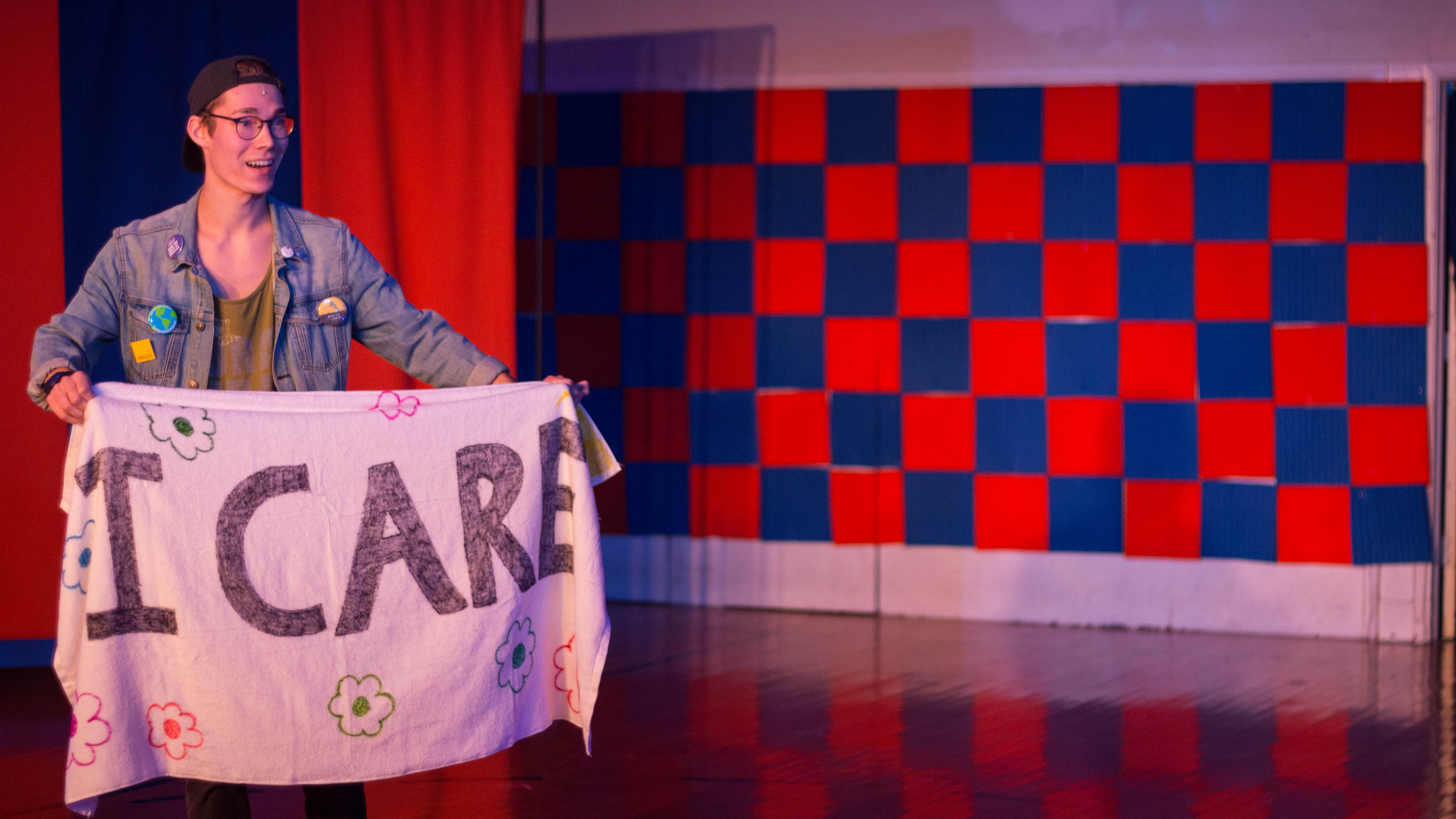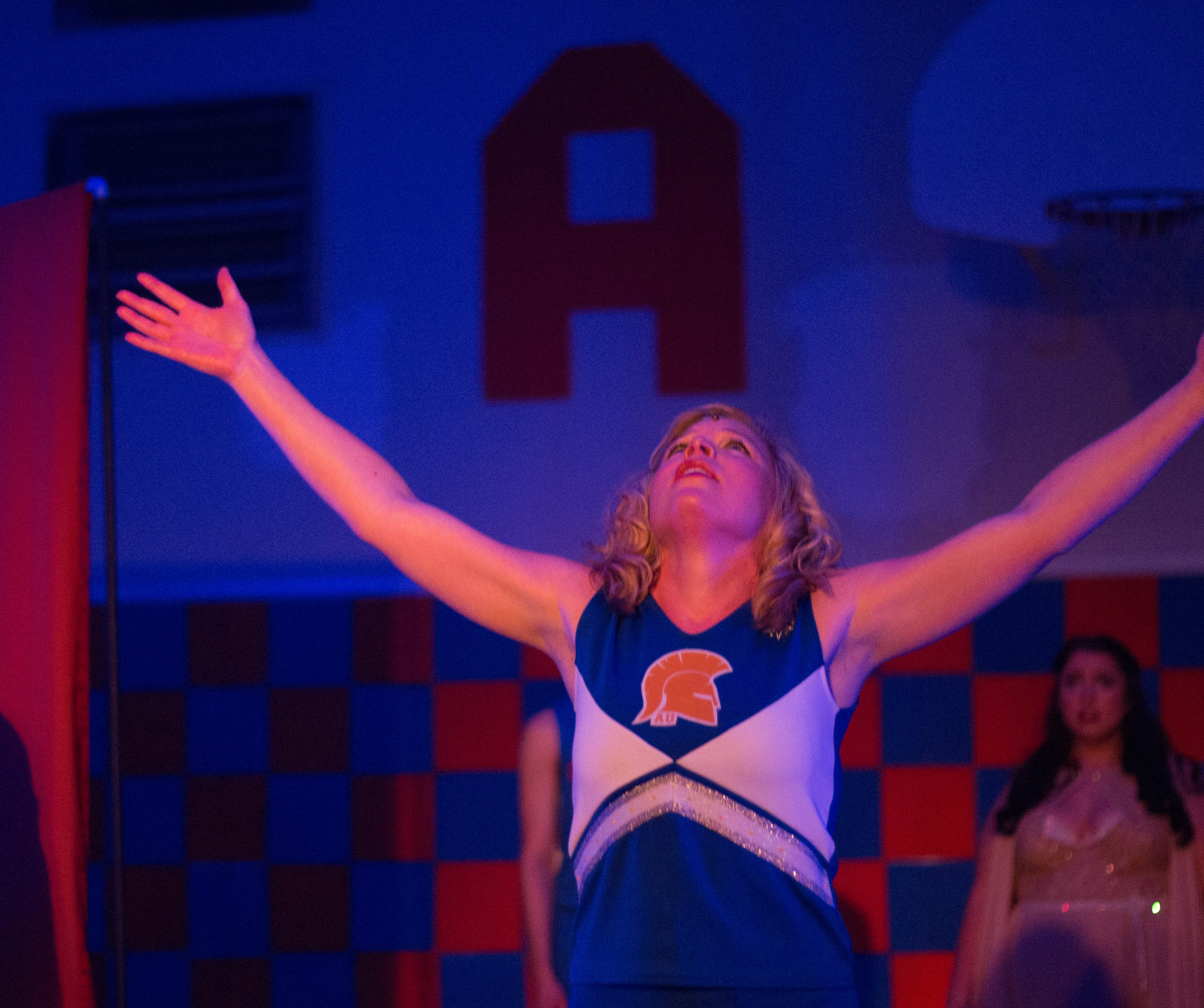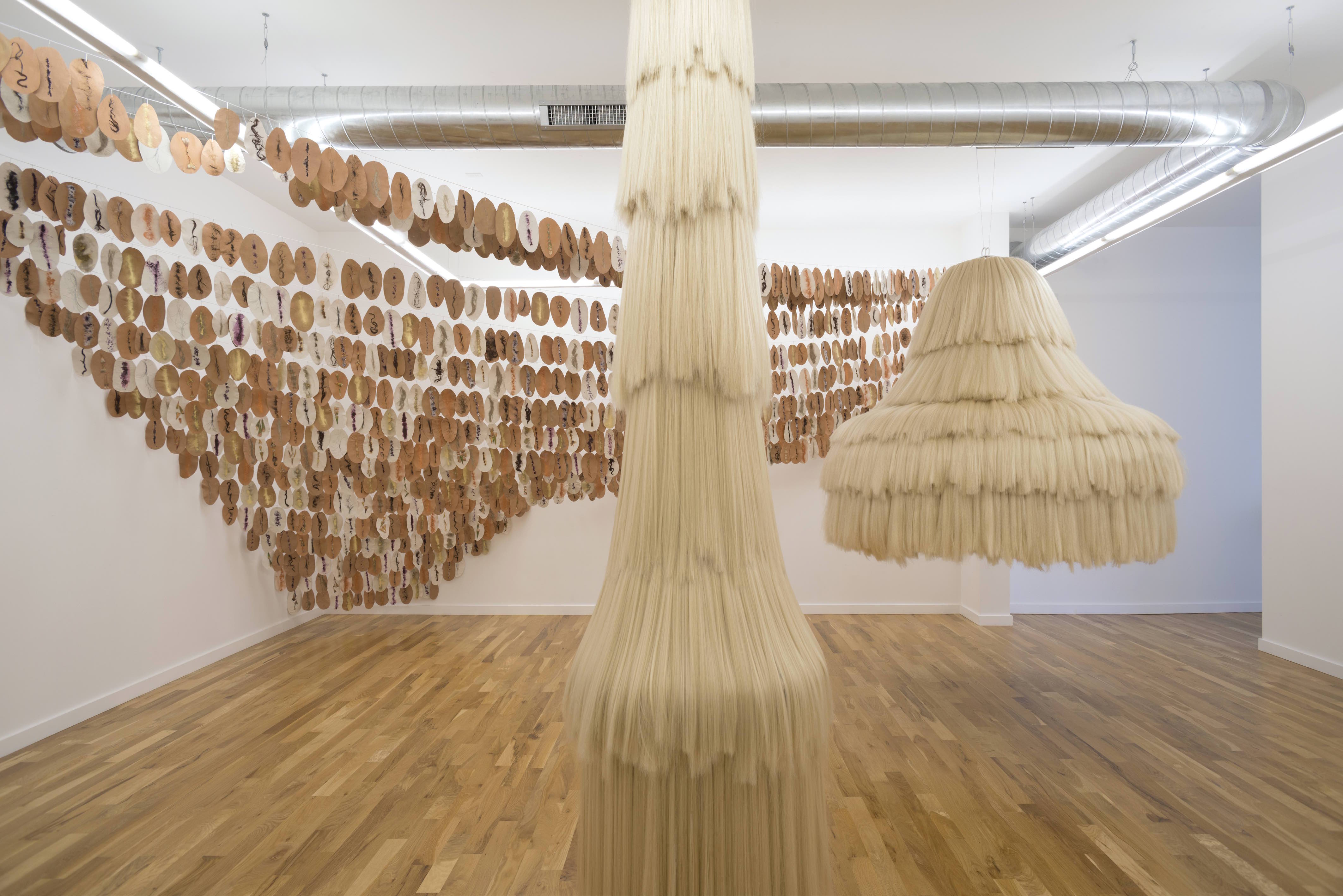
The performances from the stellar, 18-person ensemble in Refuge Theater’s “Lysistrata Jones” (written by Douglas Carter Beane with direction by Justin Brill), are nothing short of remarkable.
Shanna Vanderwerker’s choreography made me want to spring out of my seat and get up onstage.
Evan Frank’s painfully “90s”-style, site-specific set — the play takes place on an actual basketball court — confidently telegraphed the mood of the piece upon entrance.
However, these exciting elements were not enough to save this production of “Lysistrata Jones” from being the most problematic piece of performance in what many consider the new “enlightenment” of Chicago Theatre.
“Lysistrata Jones” is a modern-day musical adaptation of the famed Greek play “Lysistrata” by Aristophanes. The play, where women direct the action, has empowered woman for centuries. But the “Jones” iteration is more a male chauvinist bundle of chaos disguised with a “feminist” front.
Carter Beane’s story revolves around the play’s namesake, portrayed enthusiastically by Mary Margaret Roberts. A cheerleader and recent transfer to Athens University, Jones is fed up with her boyfriend’s basketball team on account of their 30-year losing streak. Jones encourages all the other cheerleader girlfriends in her squad to refrain from any and all sexual activities with their partners until they bring their losing streak to an end. (In the original script, the women of Greece withhold sexual privileges from their husbands until the end of the Peloponnesian War.)
But the high-school adaptation lacks meaningful stakes. Where the women of Greece strive to create peace and end the violence that their men have created, the women at Athens University’s worth depends on their boyfriends winning or losing a community college basketball game.
What’s more, when the women decide not to “put out,” the men of the story refer to them as “Germans,” and decide to break up with them. The other girls argue with Lysistrata and blame her for ruining their lives. They’re depressed that they no longer have boyfriends — and obviously, a woman’s status in society is only as good as are her relationships with men.
The males in the play later choose to go to a brothel rather than address any issues their girlfriends are presenting; they realize later, however, that “their” women are indeed more admirable than sex workers.

What “Lysistrata Jones” is telling us, then, is that for a man to realize the importance of a woman he is in a relationship with, he has to first go out and seek women whose occupation it is to “put out,” and then compare the difference.
To make matters worse, Robin (played by a magnificent Maisie Rose) is presented in the script as a nerdy slam poet/”woke” underdog. Her narrative falls into a tired 90s trope: Upon sneaking up on Mike (the male lead played by Colin Anderson) while he’s reciting obscure poetry, Robin falls for him. Beneath the chauvinist front that he puts out to the rest of the world, she sees him as a deep intellectual. The two begin a relationship, and Robin conforms to the slang lingo used in Mick’s crowd.
Where have we seen this before? Wasn’t there a musical created in 1971 called “Grease,” where a greaser and an ingénue fell for each other and the ingénue ended up conforming to the guy’s style by the end of the play? Why are we reliving this in 2017? Women’s sexuality is exploited, not empowered in “Grease,” nor in this modern-day “Lysistrata.”

There are more problems. The people of color in this play are reduced to stereotypes, and the story’s gay narrative acts as a punchline rather than a nuanced exploration of sexuality.
It could be said that Beane’s ignorance, which shows up in his writing, is at fault for all this. But it is also the responsibility of artists who are members of a community striving to create pieces of diverse representation, to read a script, analyze it, and decide that, in the case of “Lysistrata Jones,” this is not a play we need — especially now, in a cultural climate where women are constantly objectified.
Refuge Theatre’s main mission, according to their website, is to “foster a broader, more accessible theatre community. We promote the production of under-produced, under-appreciated musical theatre in traditional and non-traditional theatrical spaces creating a unique, affordable, only-in-Chicago theatrical experience.”
“Lysistrata Jones” is an underdeveloped production for its lack of diverse representation and unaccessible narrative. Perhaps Justin Brill, the straight, white, cis male director of this production, saw no issue with the script, and this is an even bigger cause for concern. Not allowing people who are the story to tell the story is a problem rooted in the very foundation of the theater industry.
Perhaps Refuge Theatre can use “Lysistrata Jones” as a learning experience, and chose to do better in choosing underdeveloped musical theatre pieces in the future.







